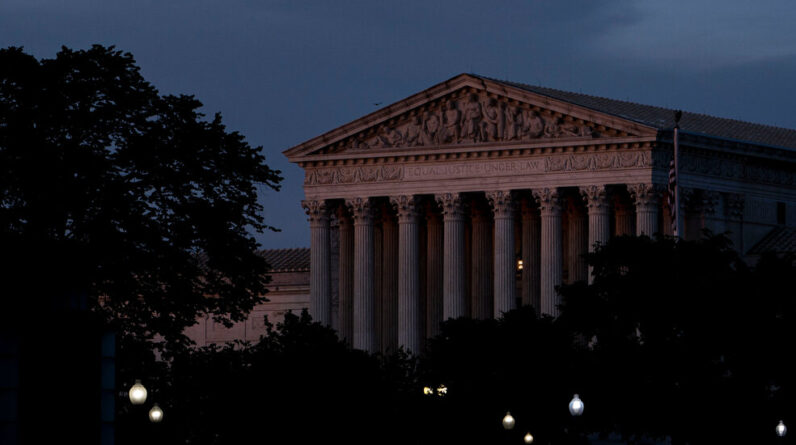
The Supreme Court this Tuesday rejects a legal theory this would have radically reshaped the way federal elections are conducted by giving state legislatures largely unchecked power to set all kinds of rules for federal elections and draw congressional maps warped by partisan gerrymandering.
The vote was 6 to 3, with Chief Justice John G. Roberts Jr. writing the majority opinion. The Constitution, he said, “does not exempt state legislatures from the ordinary restraints imposed by state law.”
Justices Clarence Thomas, Samuel A. Alito Jr. and Neil M. Gorsuch dissented.
The case concerned the “independent state legislature” theory. The doctrine is based on a reading of the Constitution Electoral clausewhich says: “The times, places, and manner of holding elections for senators and representatives, shall be established in each state by the legislature thereof.”
Proponents of the theory’s strongest form say that this means that no other body of state government—not courts, not governors, not election administrators, not independent commissions—can alter a legislature’s actions on the federal elections.
The case, Moore v. Harper, no. 21-1271, refers to a voting map drawn by the North Carolina Legislature that was initially rejected as a partisan gerrymander by the state Supreme Court. Experts said the map would likely result in a congressional delegation of 10 Republicans and four Democrats.
The state court rejected the argument that it had no right to review the actions of the state legislature, saying that to adopt the independent state legislature theory would be “repugnant to the sovereignty of the states, the authority of state constitutions, and the independence of state courts, and would produce absurd and dangerous”. consequences”.
Republicans who tried to restore the legislative map last year sought intervention from the U.S. Supreme Court, arguing in a emergency application that the state court had been powerless to act.
The justices rejected the request for immediate intervention, and the November election was held under a map drawn by state court-appointed experts. This resulted in a 14-member congressional delegation that was evenly split between Republicans and Democrats, roughly mirroring the state’s partisan divisions.
Republican lawmakers appealed to the U.S. Supreme Court, saying the state court had no right to second-guess the Legislature. When the U.S. Supreme Court heard arguments in the case in December, the justices appeared divided, if not fractured, over the limits of the theory.
The makeup of the North Carolina Supreme Court changed after the November election, favoring Republicans by a 5-2 margin. In what a dissenting justice called a “shameful manipulation of the fundamental principles of our democracy and the ‘rule of law’, the new majority reverse coursesaying that the Legislature was free to draw gerrymandered voting districts as it saw fit.
Many observers expected the US Supreme Court to dismiss the case in light of this development. But Chief Justice Roberts concluded that the Supreme Court retained jurisdiction over the case.
The Supreme Court has never endorsed the independent state legislature theory, but four of its conservative members have issued opinions that seemed take it very seriously.
When the court closed the doors of the federal courts to claims of partisan gerrymandering Rucho v. common cause in 2019, Chief Justice Roberts, writing for the court’s five most conservative members, said state courts could continue to hear such cases, including in the context of congressional redistricting.
“Our conclusion does not condone excessive partisan gerrymandering,” he wrote. “Nor does our conclusion condemn complaints about the district as echoing in a vacuum. States, for example, are actively addressing the problem on multiple fronts.” Appearing to anticipate and reject the independent state legislature theory, he wrote that “the provisions of state statutes and state constitutions may provide standards and guidance for state courts to apply.”
In 2015, in Arizona State Legislature v. Arizona Independent Redistricting Commission, the court ruled that Arizona voters had the right to try to make the process of drawing congressional district lines less partisan by creating an independent redistricting commission despite the reference to the “legislature ” in the Electoral Clause.
“Nothing in this clause instructs, nor has this court ever held, that a state legislature may prescribe regulations as to the time, place, and manner of holding federal elections in defiance of the provisions of the state constitution,” he said. said Justice Ruth Bader Ginsburg, who died on June 19. 2020, he wrote in the majority opinion of the 5 to 4 decision.
[ad_2]
Source link





